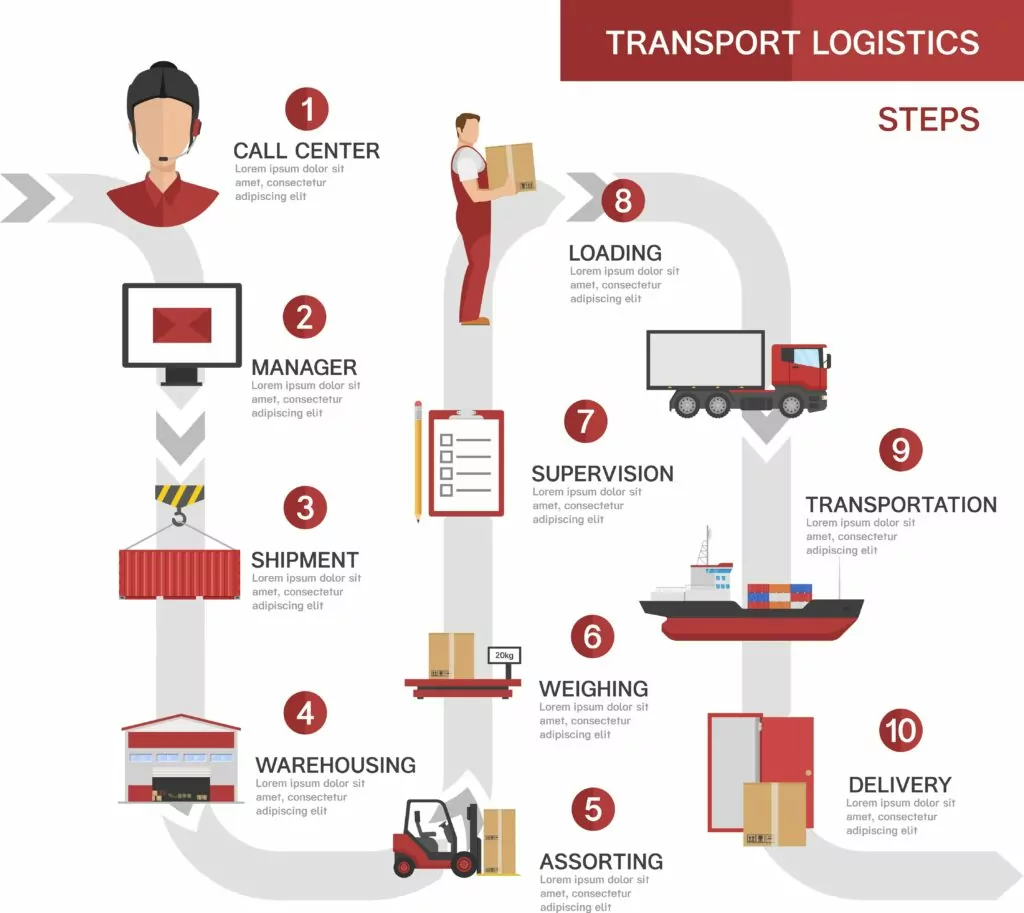
A good operations and logistics management guarantees more efficiency and cost reduction for companies, as well as delivering greater customer satisfaction. To ensure good operations and logistics management, there is no other way than to apply good planning and monitoring the entire process.
At the same time, the growth and optimization of the logistics market is forcing organizations to review their supply chains, in order to create more efficiency and avoid high prices.
According to the Brazilian Cargo Handling Index, published by AT&M, in the first quarter of 2021, cargo transportation in Brazil had an increase of 38% when compared to the same period of 2020.
The e-commerce growth was one of the main drivers for this expansion, requiring businesses to pay more attention to the issue.
If your company is looking to improve operations and logistics efficiency, this article is for you. Come with us and get your action plan ready to go!
In a company, the operations and logistics management department is responsible to plan and put into practice the right use of the available resources. In addition, one of its goals is to monitor the entire process to make sure that the products are being delivered with the best efficiency.
This involves several factors, and it takes a good internal processes organization and complete planning — from the transportation of raw materials to the delivery of the manufactured product, essential aspects for the optimization of the company’s results as a whole.
Operations and logistics management need to be done in order to ensure greater efficiency and reduction of operational costs throughout the logistics process. With a well executed quality control, it is possible to optimize processes and results.
The logic is that, progressively, it helps the organization to promote more competitiveness in the market; after all, with less costs, the company can offer more attractive prices for their customers.
In addition, adequate operational management is capable of reducing delivery time without increasing any costs, which brings more satisfaction to the final consumer.
The operations and logistics are done according to a business plan and a schedule. This planning takes into consideration the characteristics of each business.
Thus, it is necessary to deeply know each type of company first and then make a plan to optimize the production processes. In summary, the organization must:
Learn how to make your sales and operations plan using the following information:
The first step in implementing operations and logistics management is planning. It involves every move; from product reception to the delivery to the final consumer.
It is during the planning that flaws in the most varied phases are identified. Planning can be both strategic and tactical, and allows the business owner to have a broader view of the entire process.
Strategic planning is the one focused on the organization as a whole –in which the manager dives into all the processes, while tactical planning is oriented to a part of the process, such as stocking, for example.
After identifying all the processes and correcting the gaps, the company needs to create mechanisms to keep tracking them.
For example, the organization can create indicators to evaluate the delivery time of the raw material after an order is made. This time can be monitored, and if it is increasing, it might be necessary to consider purchasing from other suppliers.
Here is when the effectiveness of the current applied methods will be identified, as well as an eventual need for improvement. When errors and waste are spotted, it is essential to get rid of them.
For the logistics and operations management process to be efficient, the organization needs to elaborate an order map.
This map helps to develop a better strategy in production, as well as to define the best routes and most favorable means of transportation to move the cargo.

Another key point that cannot be left aside is the constant training and qualification that must be offered. Human resources, that is, employees, are the most valuable assets of an organization.
This is one way to accomplish a high level of quality for the operation, making sure that your team knows how to handle the tools, technologies and resources as efficiently as possible, on a daily basis.
Furthermore, trained professionals are more motivated and usually perform their jobs with much more dedication.
Operations management and logistics brings a lot of benefits to your company. The main one is the increase in profitability.
That is, when the processes are optimized, there is a reduction in costs, as well as a more engaged team, leading to greater productivity.
The cost reduction allied to the increase in productivity is capable of improving the organization’s operational results and, as a consequence, generate more profit. See which are the main benefits of doing operations and logistics management:
It is possible to notice that when a company manages to reduce costs and get more efficient, there is a greater integration of employees — they know exactly what they need to do and which goal they have to meet in a given period of time.
As a result, the organization can improve its pricing, towards more sales opportunities and also stronger customer loyalty.
After all, when you buy a product for a lower price and delivery is made within or even before the agreed deadline, the chances of considering a new purchase are higher. Thus, the long-term benefits are even greater.
As you have seen above, proper management of operations and logistics is the key to greater efficiency in the company. However, this efficiency can only be achieved through automation.
In fact, when processes are carried out manually, the chances of making mistakes and wasting time are much greater. But, when the organization relies on advanced softwares, the chances to achieve better results are much higher.
Considering that, a management software will guarantee an easier follow-up of the whole process, besides identifying more precisely where the internal gaps are.
Therefore, as well as adopting good planning practices and providing top training for the whole team, it is essential that the company invests in good management software.
If you are looking for a software that helps you with operations and logistics management, you have found it. STRATWs One is an excellent tool that provides optimized management in real time. Check it out, ask for a 100% free demonstration of our software!
Your technology partner to connect you to what really matters.